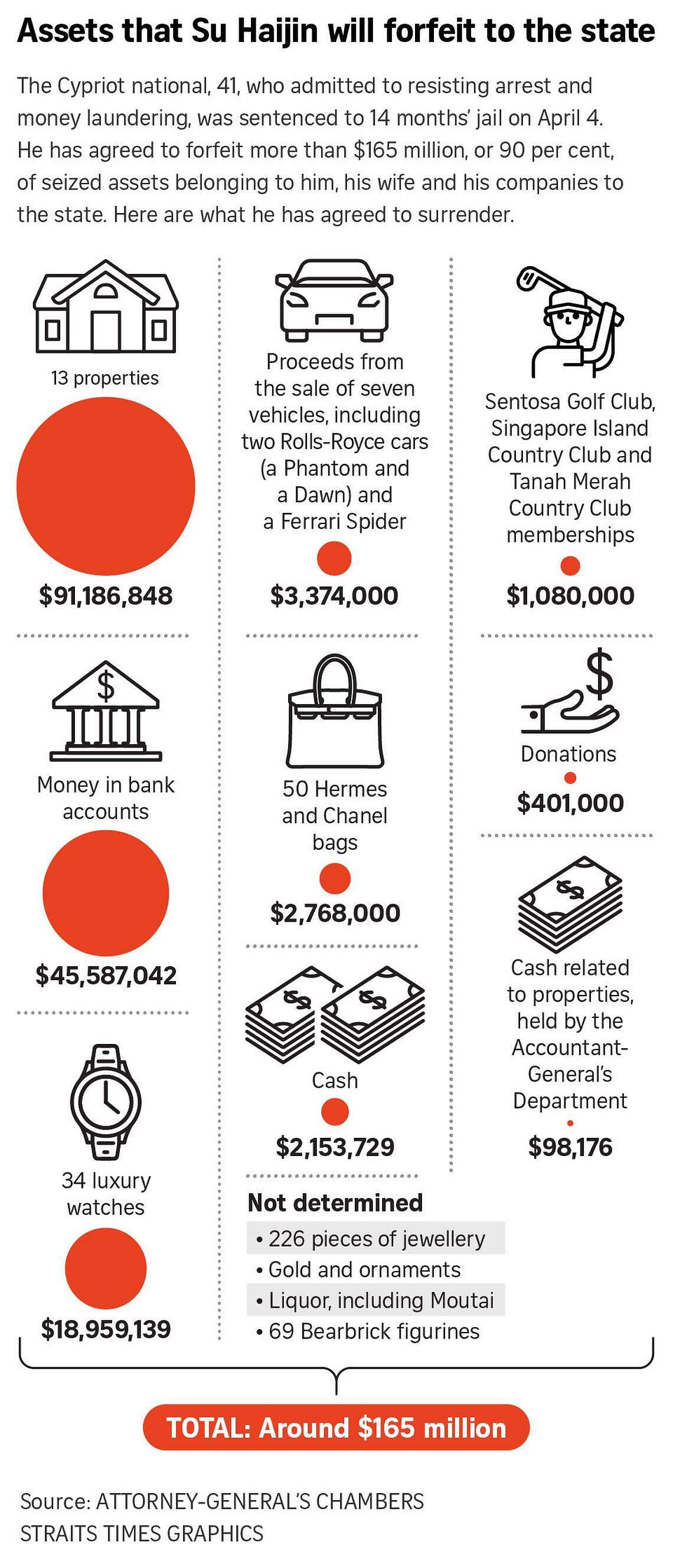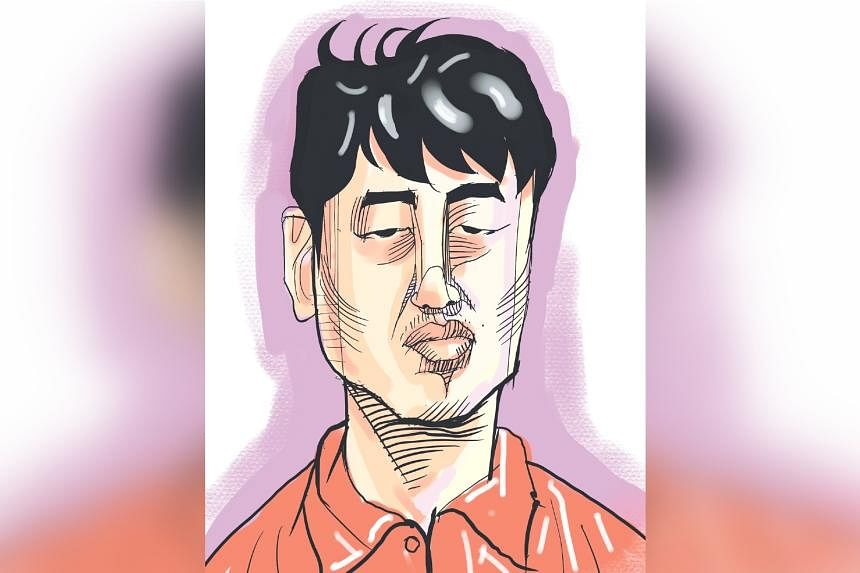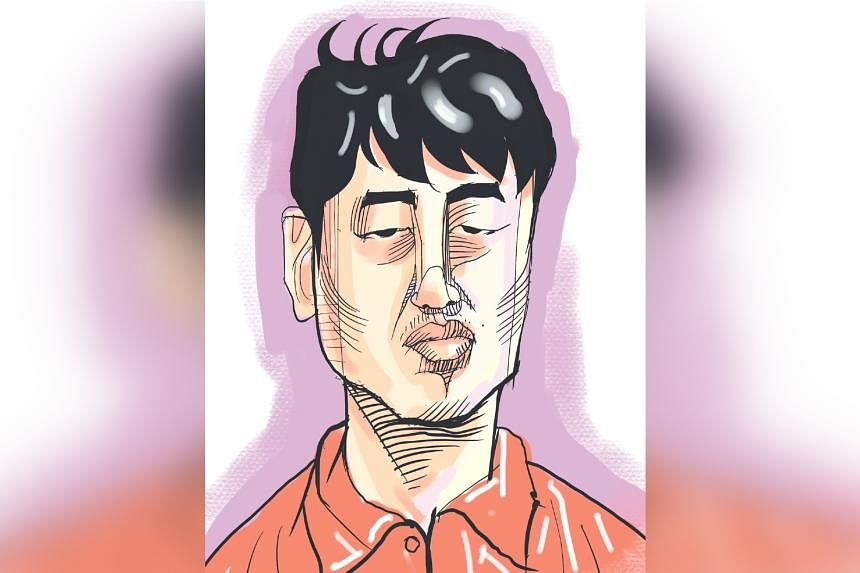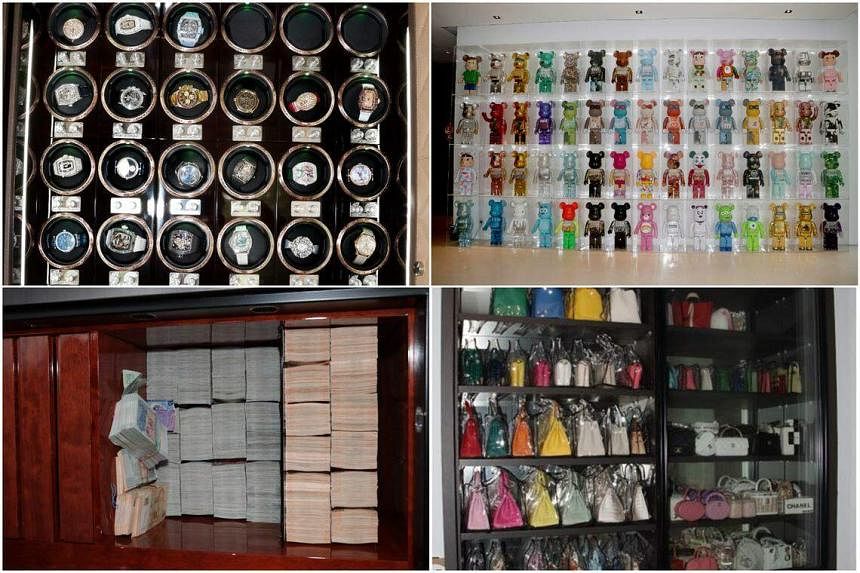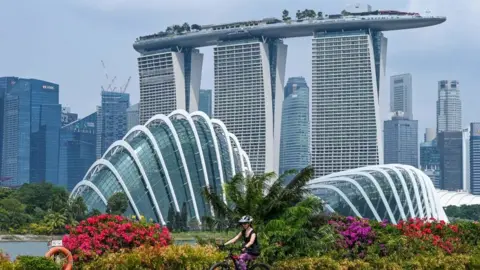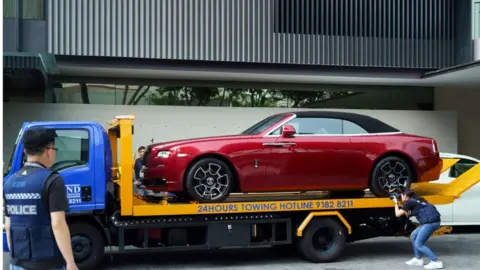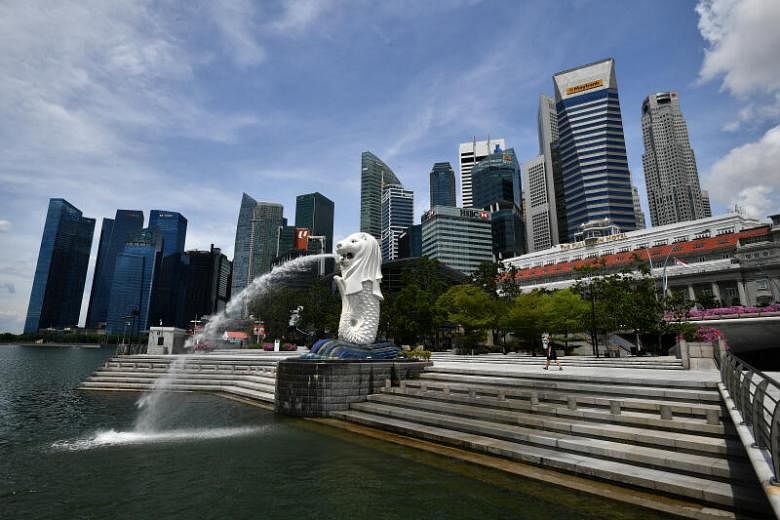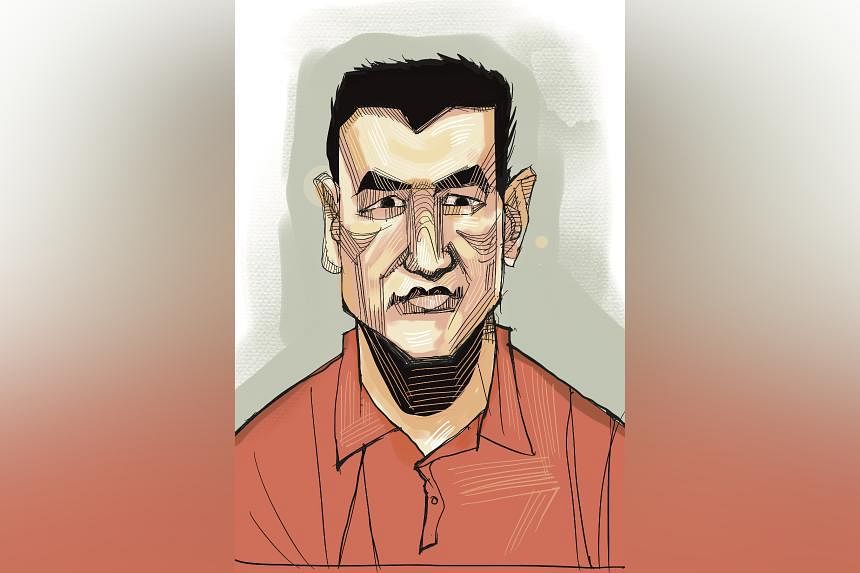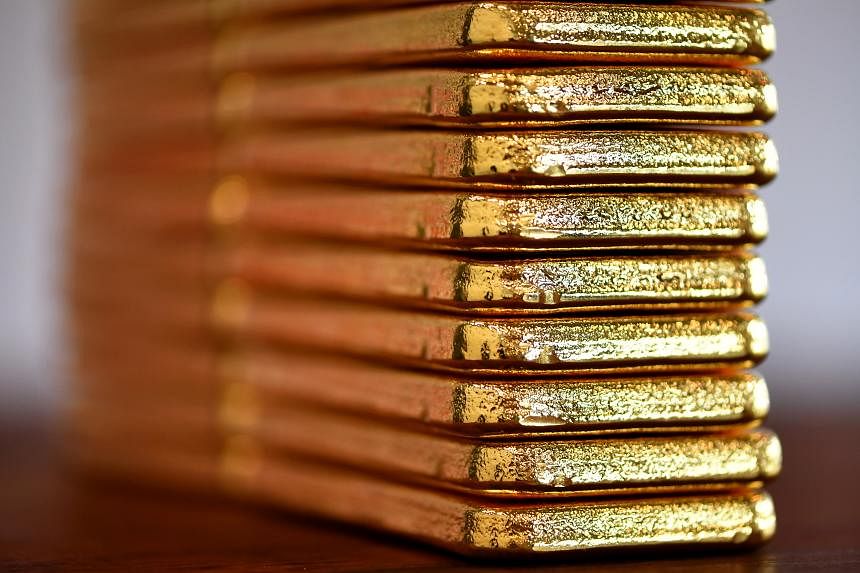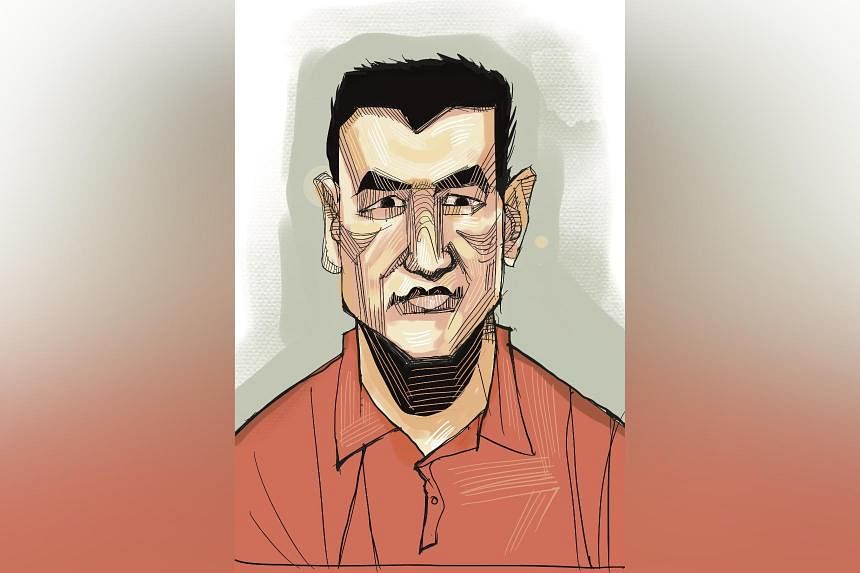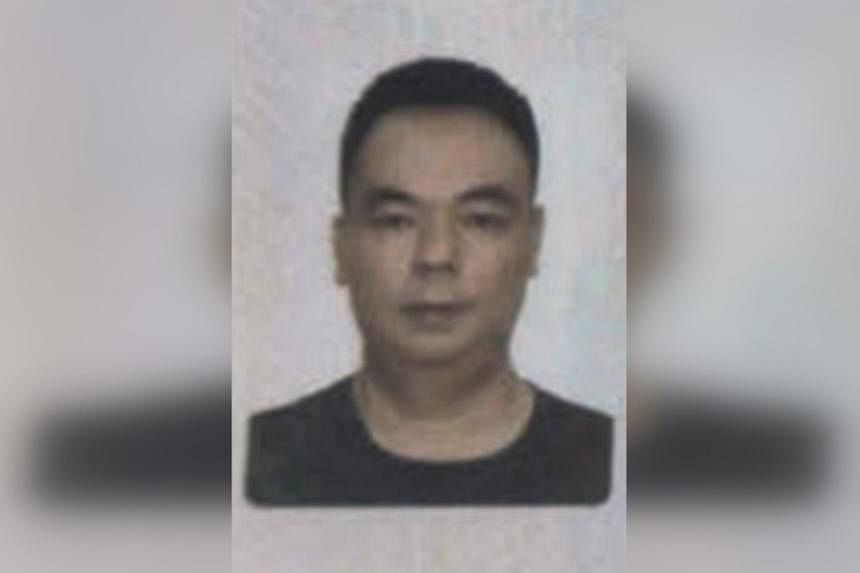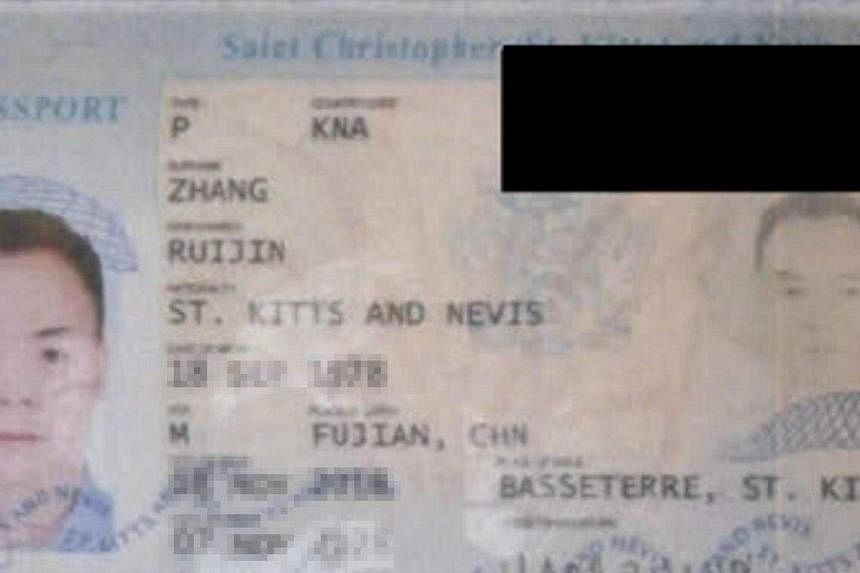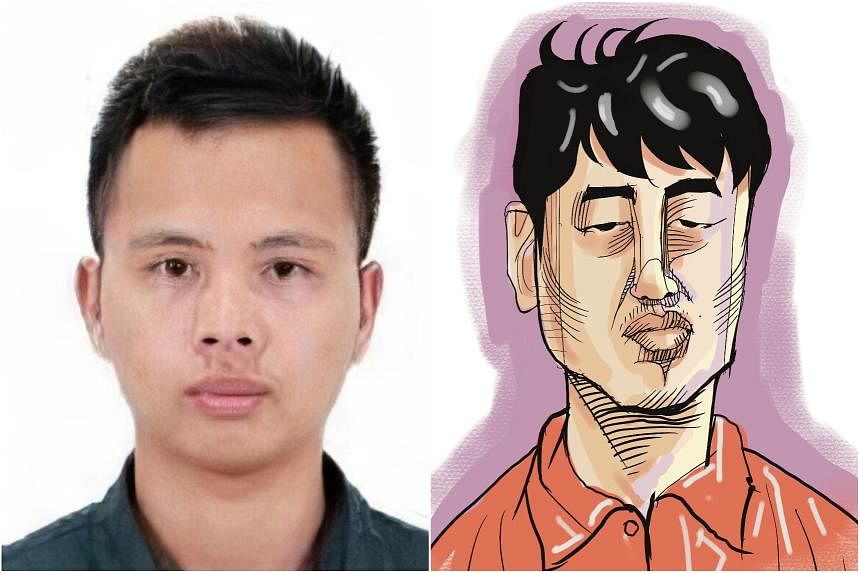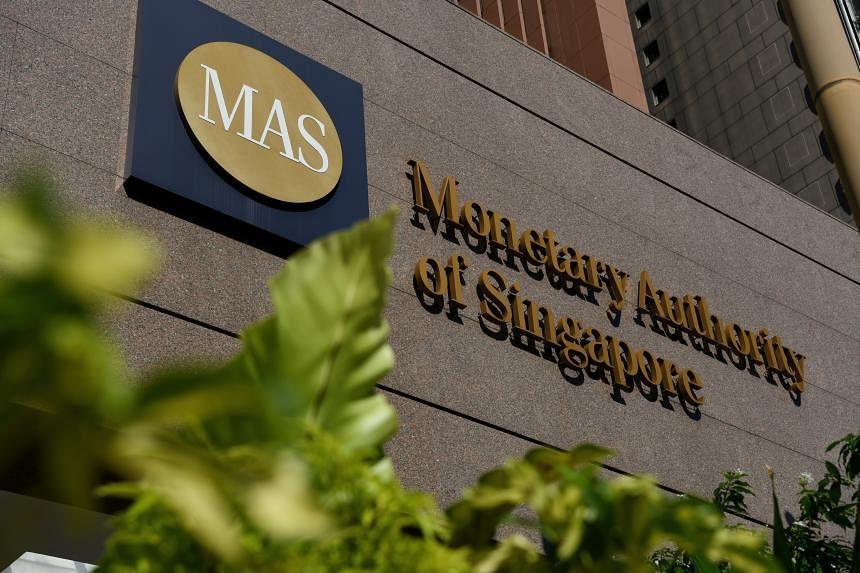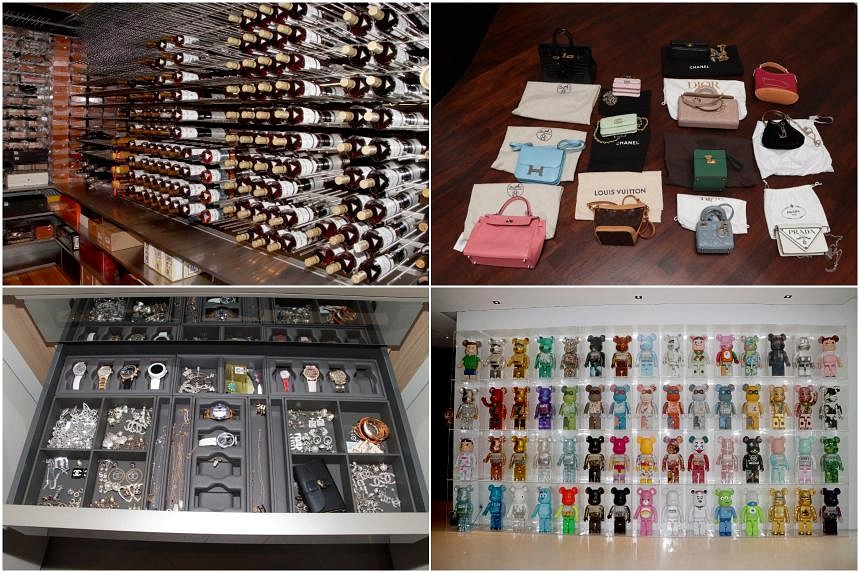- Joined
- Jul 25, 2008
- Messages
- 13,811
- Points
- 113
$3b money laundering case: Man who jumped from bungalow balcony during raid gets 14 months’ jail
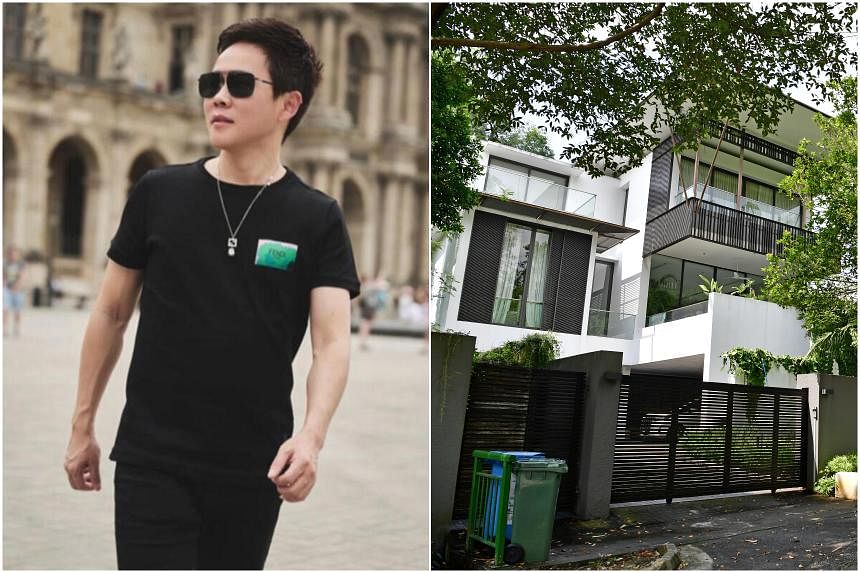
Su Haijin is the second of 10 foreigners linked to Singapore’s largest money laundering case to be convicted. PHOTOS: WECHAT, ST FILE
Nadine Chua and Wong Shiying
APR 05, 2024
SINGAPORE – Cypriot national Su Haijin, who jumped from the second-floor balcony of a good class bungalow (GCB) during a police raid, has been convicted of resisting arrest and money laundering.
On April 4, the 41-year-old, who faced a total of 14 charges, was sentenced to 14 months’ jail.
Su is the second of 10 foreigners linked to Singapore’s largest money laundering case to be convicted and sentenced. More than $3 billion in cash and assets have been seized so far in relation to the case.
He admitted to one charge of resisting arrest and two money laundering charges. The latter involved Su possessing over $1.4 million, suspected to be criminal benefits, in Yihao Cyber Technologies’ DBS and UOB accounts.
Su is a director and sole shareholder of Yihao, which was incorporated in 2017.
Another 11 charges were taken into consideration for his sentencing.
The prosecution, which sought 12 to 15 months’ jail for Su, said he will forfeit more than $165 million, or around 90 per cent of his assets, to the state.
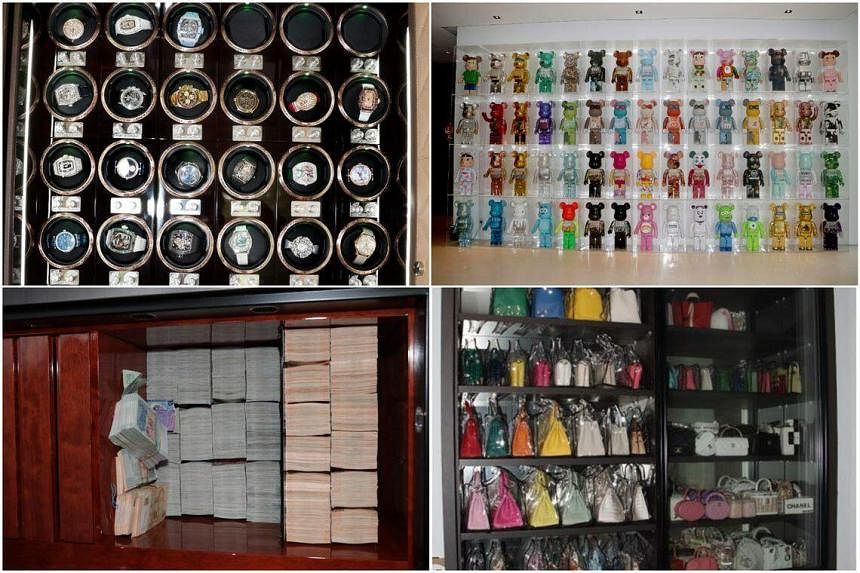
Some of the assets belonging to Su Haijin that were seized by the police in the money laundering case. PHOTOS: SINGAPORE POLICE FORCE
Seeking not more than 11 months’ jail for Su, defence lawyer Julian Tay said his client’s seized assets include 13 properties worth around $91 million, all the money in his bank accounts worth $45 million, and 69 Bearbricks, which are collectible toy figurines.
Also among the items to be forfeited are seven vehicles worth more than $3.3 million, nine luxury watches worth almost $19 million, and three country club memberships worth over $1 million.
The defence lawyer said: “He has given up more than what the charges are referring to, and due credit should be given.”
Su, who is originally from China, appeared in court via video link at around 2.45pm. He was expressionless as the statement of facts was read out to him.
He has been in remand for about eight months since his arrest on Aug 15, 2023.
Su was arrested in a 32,000 sq ft GCB at Ewart Park in Bukit Timah, which he was renting, when islandwide raids led by the Commercial Affairs Department (CAD) were conducted on luxury homes across Singapore.
On April 4, Deputy Public Prosecutor Ng Jean Ting said a team of police officers arrived at Su’s home at Ewart Park at around 6.40am on Aug 15, 2023.
The police identified themselves to his eldest son, who led them to his parents’ bedroom.
When Su’s son asked his father to come to the door, Su did not do so, and instead asked his son who the people with him were.
The police identified themselves and instructed Su to open the door, but he did not respond. They stormed the room but could not find him.
The DPP said Su jumped from the bedroom balcony onto the ground floor, fracturing his legs and injuring his wrist. Despite this, he hobbled down a flight of stairs to flee his home from a side gate and hid in a drain. He was found by the police and arrested.
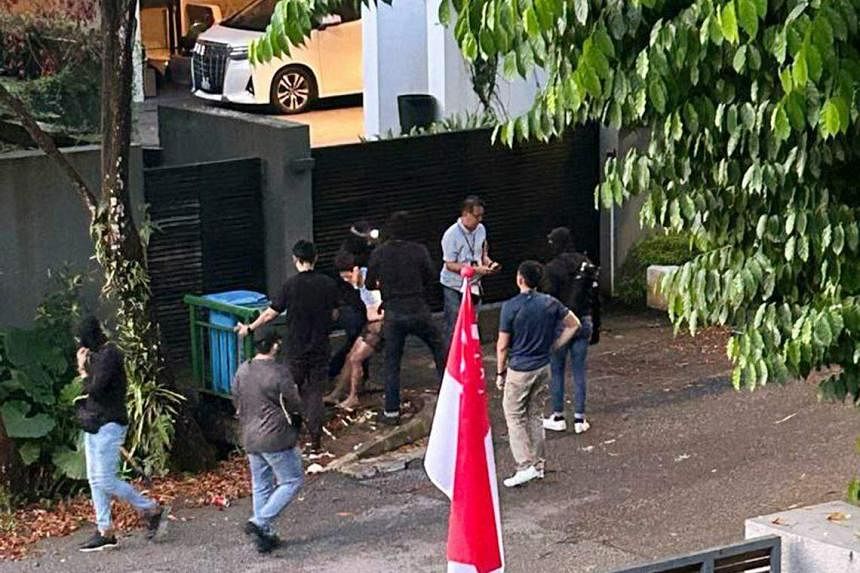
Su (in white shirt and shorts) jumped from the second-floor balcony of a good class bungalow during a police raid. PHOTO: ST READER
DPP Ng said Su used Yihao to open a corporate bank account with OCBC in May 2021 and declared to the bank that the company’s source of funds was his personal wealth.
Su was issued an employment pass by the Ministry of Manpower (MOM) in August 2017 for his role as Yihao’s chief executive.
Investigations showed that Yihao did not have legitimate business operations and was not offering any products or services.
Between 2019 and 2022, Su instructed a Wang Jun Jie to prepare false financial statements of Yihao with inflated revenue.
The Straits Times reported in September 2023 that Wang held multiple directorships, and secretarial and shareholder positions in 185 firms. He had his registration as a qualified individual cancelled by the Accounting and Corporate Regulatory Authority in January.
The DPP said Yihao’s fake financial statement for financial year 2021 was submitted to DBS, UOB and OCBC as part of due diligence processes.
Su was also involved in submitting the forged statements to MOM and the Inland Revenue Authority of Singapore to renew his work pass and to fulfil Yihao’s tax obligations.
DPP Ng said that in 2021, Yihao’s OCBC account received more than $2 million from Marketrole Asia Pacific Services, an overseas company involved in online gambling operations.
Messages on Su’s mobile phone showed that he was involved in unlawful online gambling activities abroad, which gave the authorities reason to suspect that the $2 million were criminal proceeds.
Su previously admitted to investigators that he owned 10 properties abroad worth more than $14.2 million. He also has partial ownership of a yacht named Family, which is valued at US$4 million (S$5.4 million).
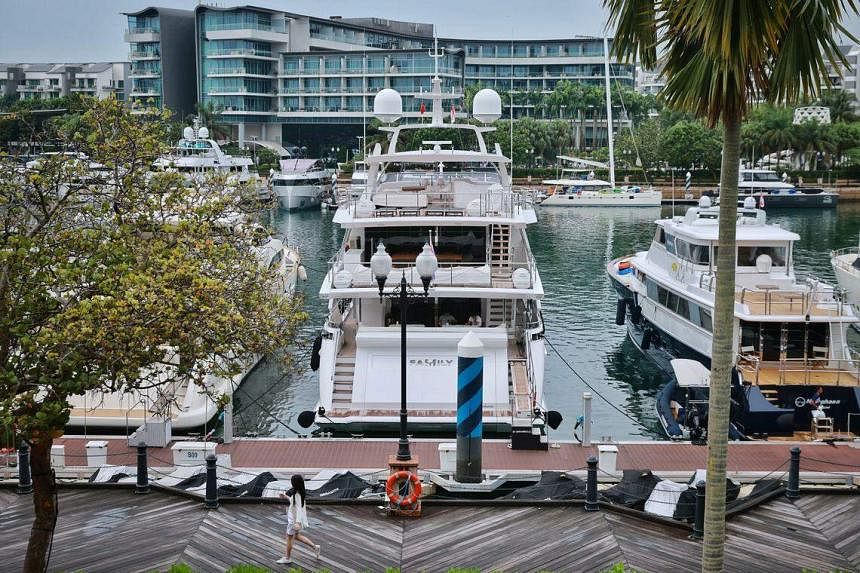
Su has partial ownership of a yacht named Family, which is valued at US$4 million (S$5.4 million). ST PHOTO: JASON QUAH
In its submissions, the prosecution said that there is a pressing need to deter money laundering offences to maintain Singapore’s reputation as an international financial hub.
DPP Ng said that Su’s resistance to his arrest increases his culpability. “His conduct is telling of his sense of guilt and demonstrates his determination to put himself beyond the reach of the law,” she added.
The DPP said Su abused Singapore’s economic and social infrastructure by laundering substantial funds through Yihao’s bank accounts and submitting false statements to public agencies and banks.
In mitigation, Su’s lawyer said that while this is Singapore’s largest money laundering case, his client has been unfairly associated with the other individuals arrested in the case, “as if he was part of a sinister cartel and syndicate”.
Mr Tay said: “(Su), in reality, is no different from any other loving family man. He is a devoted husband of over 20 years in marriage, a loving father to four kids, and his youngest is still an infant.”
The lawyer said his client relocated his family to Singapore around seven years ago and had plans to expand his family, do business and send his father with end-stage renal disease for medical treatment here.
“All these plans came crashing down when he was arrested and held in remand for more than seven months,” he added.
As for Yihao, Mr Tay said the company was set up by Su to eventually operate as an IT company based here to complement his businesses abroad.
The lawyer added: “Unfortunately, his plans for the company did not take off well in the initial years and were further delayed by the Covid-19 pandemic.”
Mr Tay also highlighted that Su has consented to the sale of all his seized vehicles, which helps to preserve their value and avoid the need for the police to store them.
On April 2, Cambodian national Su Wenqiang, 32, another of the 10 accused, was sentenced to 13 months’ jail after he pleaded guilty to two counts of money laundering. He was the first in the group to be sentenced and faced a total of 11 charges.
In response to queries from The Straits Times on what will happen to Su Wenqiang after his release, the Immigration and Checkpoints Authority said on April 4 that foreigners convicted of offences in Singapore will be deported after serving their sentences and barred from re-entering Singapore.
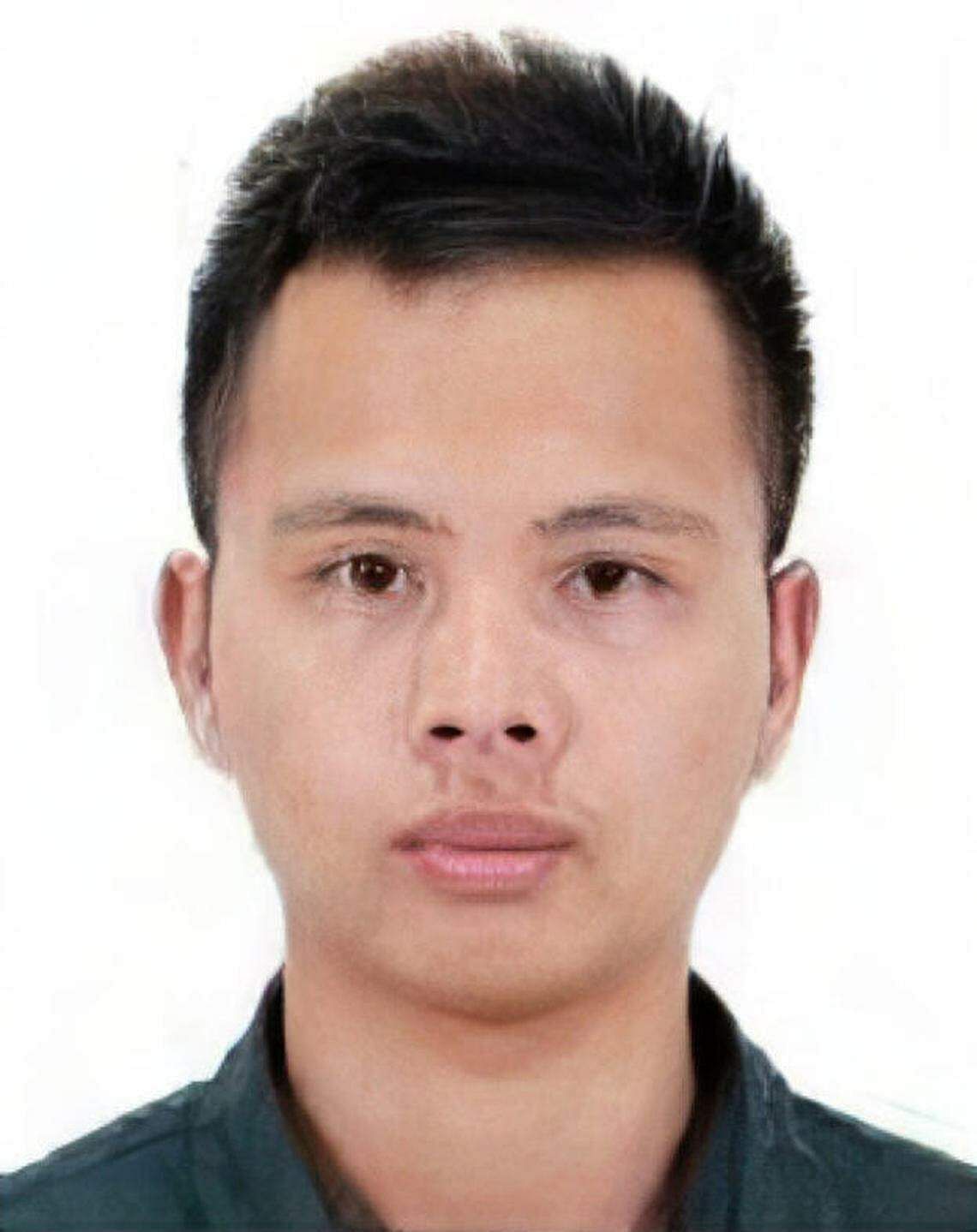
Su Wenqiang was sentenced to 13 months in jail after he pleaded guilty to two counts of money laundering. PHOTO: CHINA POLICE
Chinese national Wang Baosen, 32, who faces two money laundering charges, is expected to plead guilty on April 16.
Mr David Chew, director of the CAD, said criminals will seek to abuse Singapore’s financial system by creating complex corporate structures to receive their criminal proceeds from overseas, launder them and enjoy them here with their families.
He added: “The police will take tough and decisive action to afford these criminals no safe harbour for either themselves or their wealth.
“Asset confiscation is a key priority in Singapore and beyond seeking imprisonment terms for their crimes, we will take all steps within our laws to deprive criminals of their proceeds of crime.”
